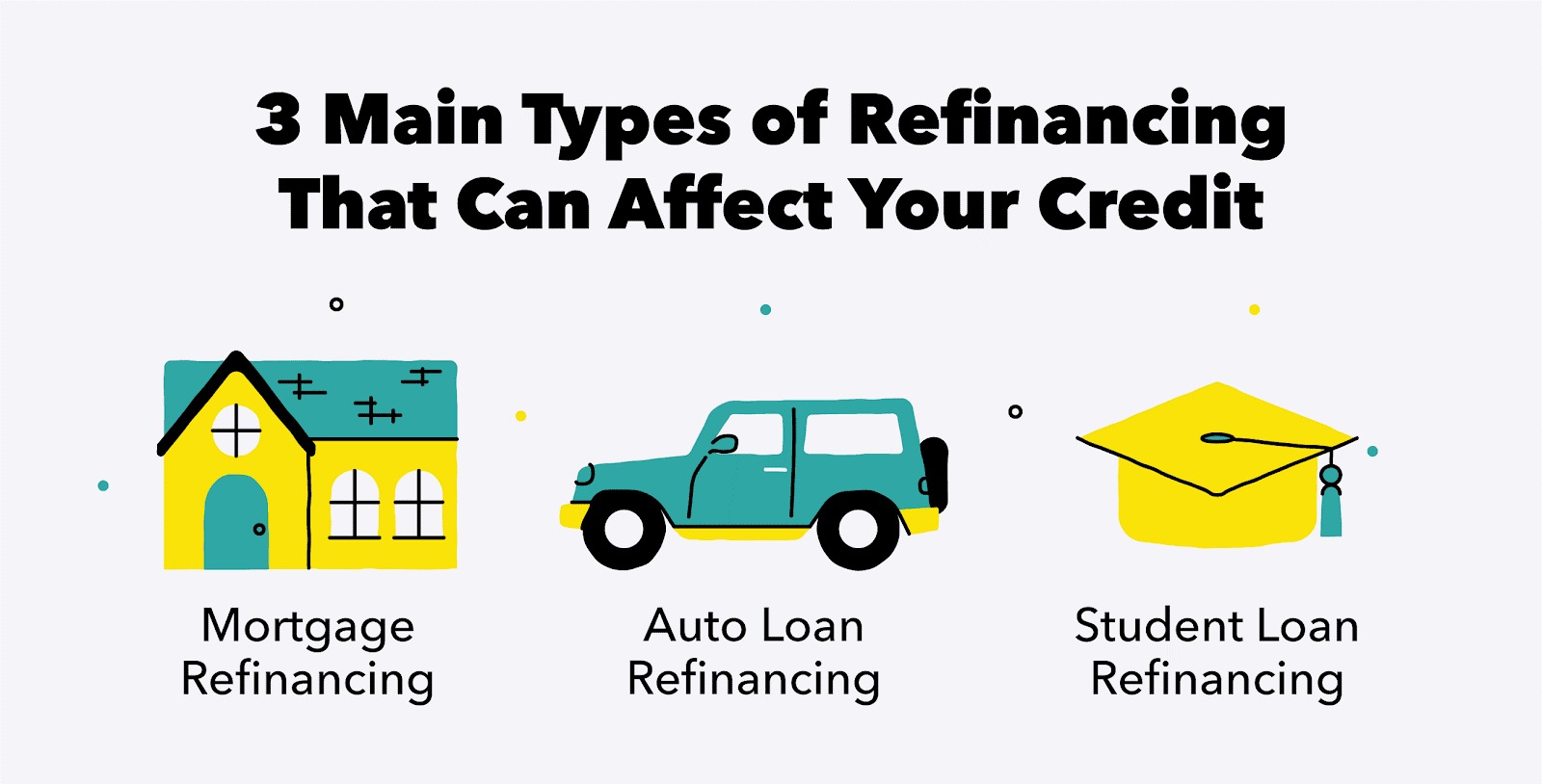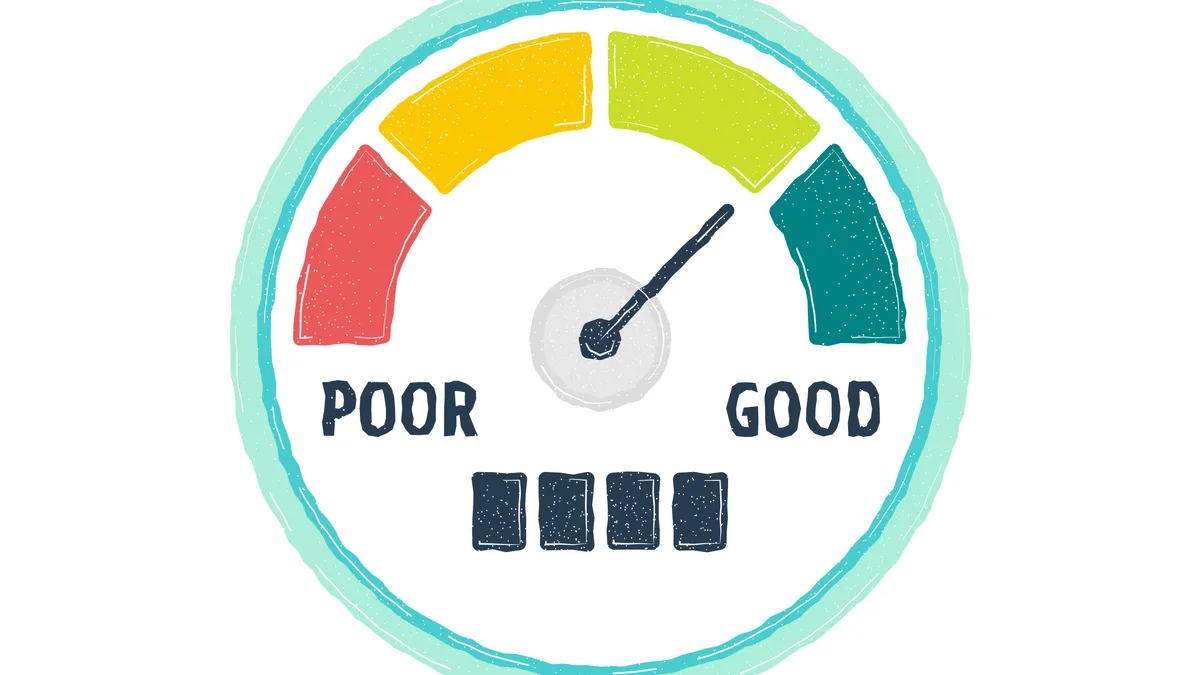Home>Finance>How Much Does Your Credit Score Drop When You Refinance Your Car


Finance
How Much Does Your Credit Score Drop When You Refinance Your Car
Published: October 22, 2023
Learn how refinancing your car can affect your credit score and find out how much it may drop. Get insights on car loan finance and credit score impact.
(Many of the links in this article redirect to a specific reviewed product. Your purchase of these products through affiliate links helps to generate commission for LiveWell, at no extra cost. Learn more)
Table of Contents
Introduction
Refinancing your car loan is a financial decision that can help you save money, lower your interest rates, or even extend your loan term. However, it’s important to understand that refinancing your car loan can also have an impact on your credit score. Your credit score is a numerical representation of your creditworthiness, and it plays a key role in obtaining favorable interest rates on future loans or credit cards. In this article, we will explore how refinancing your car loan can affect your credit score and provide you with some tips to minimize any negative impact.
Before we delve into the details, let’s briefly touch upon the importance of credit scores and how they are calculated. Your credit score is determined based on various factors, including your payment history, credit utilization, length of credit history, types of credit, and recent credit inquiries. Lenders use this information to assess the risk associated with lending you money. A higher credit score indicates a lower level of risk, making you an attractive candidate for favorable loan terms and lower interest rates.
When you decide to refinance your car loan, it involves applying for a new loan to replace your existing one. This means that your current lender will pay off the remaining balance on your original loan, and you will start making payments to your new lender. As with any new loan application, the refinancing process involves a credit check, which can have a temporary impact on your credit score.
In the next section, we will explore the specific factors that can affect your credit score and how they come into play when you refinance your car loan.
Understanding Credit Scores
Before we dive into the impact of refinancing your car loan on your credit score, let’s first understand how credit scores are calculated. Credit scores are numerical values that reflect your creditworthiness. They are important because they play a significant role in determining whether you will be approved for credit and the interest rates you will receive.
Credit scores are typically calculated using a formula developed by credit scoring companies like FICO or VantageScore. While the exact calculation formulas are not made public, there are several key factors that generally influence your credit score:
- Payment history: This factor accounts for the largest portion of your credit score. It reflects how consistently you make your payments on time.
- Credit utilization: This is the ratio of your credit card balances to your credit limits. Keeping your credit utilization below 30% is generally recommended.
- Length of credit history: The longer your credit history, the better. It demonstrates your ability to manage credit over time.
- Types of credit: Having a mix of different types of credit, such as credit cards, loans, and mortgages, can positively impact your credit score.
- Recent credit inquiries: Each time you apply for new credit, it generates a hard inquiry on your credit report, which can temporarily lower your credit score.
Now that we have a basic understanding of how credit scores are determined, let’s explore how refinancing your car loan can potentially impact your credit score.
Factors That Affect Credit Scores
Several factors contribute to the calculation of your credit score. Understanding these factors will help you assess the potential impact of refinancing your car loan on your credit score.
1. Payment history: Your payment history is the most significant factor impacting your credit score. Making timely payments on your car loan and other debts demonstrates responsible financial behavior and boosts your credit score.
2. Credit utilization: This refers to the percentage of your available credit that you are currently using. Your credit utilization ratio should ideally be below 30%. By refinancing your car loan, you may be able to lower your monthly payments and decrease your credit utilization, which can have a positive impact on your credit score.
3. Length of credit history: The length of your credit history is an essential component of your credit score. If you have a longer credit history with timely payments, it can positively influence your credit score. Refinancing your car loan may not directly impact the length of your credit history, but it can affect the average age of your accounts, which is a smaller factor in credit score calculations.
4. Types of credit: Having a mix of credit accounts, such as credit cards, mortgages, and car loans, can have a positive impact on your credit score. When you refinance your car loan, it can contribute to having a diverse credit portfolio, which is viewed favorably by credit scoring models.
5. Recent credit inquiries: Whenever you apply for credit, a hard inquiry is generated on your credit report. Multiple hard inquiries within a short period can negatively impact your credit score. When refinancing your car loan, the lender will likely make a hard inquiry into your credit. While this may cause a small, temporary dip in your credit score, the impact is generally minimal.
It is important to note that these factors interact with each other, and the impact of refinancing on your credit score will vary depending on your individual financial circumstances. However, by understanding the factors that affect credit scores, you can take steps to minimize any potential negative impact when refinancing your car loan.
In the next section, we will delve into how the refinancing process can specifically affect your credit score, particularly in terms of credit inquiries.
The Impact of Refinancing Your Car Loan on Credit Scores
Refinancing your car loan involves applying for a new loan to replace your existing one. This means that the lender will conduct a credit check during the application process. The credit check results in a hard inquiry on your credit report, which can temporarily lower your credit score by a few points.
However, the impact of a hard inquiry on your credit score is typically minimal and short-lived. FICO, one of the most widely used credit scoring models, considers multiple inquiries for the same type of credit, such as a car loan, within a certain period as a single inquiry. This means that if you are actively shopping for the best refinancing rates and submit multiple loan applications within a short timeframe, it should only affect your credit score as one inquiry.
Furthermore, the negative impact of a hard inquiry on your credit score diminishes over time. In most cases, the effects of a hard inquiry are significantly reduced within a few months and disappear completely within a year.
It’s important to note that while the initial credit inquiry may have a minimal impact on your credit score, the way you manage your new car loan after refinancing can have a more substantial effect. Making timely payments and responsibly managing your new loan will help improve your credit score over time.
In addition to the hard inquiry, refinancing your car loan can also affect your credit score in the following ways:
- Change in credit utilization: Refinancing your car loan may result in a change in your monthly payment amount. This can impact your credit utilization ratio, which is the percentage of available credit you are using. Lowering your payment can reduce your credit utilization and potentially improve your credit score.
- Change in loan term: If you choose to extend the term of your loan when refinancing, it may affect your credit score. Longer loan terms could result in a higher overall debt load and a slightly lower credit score.
- Improved payment history: Refinancing your car loan and making consistent, on-time payments can help establish a positive payment history, which is a significant factor in credit scoring.
It’s essential to consider these factors when deciding to refinance your car loan. While there may be a temporary impact on your credit score, the potential long-term benefits of refinancing, such as saving on interest payments, may outweigh any temporary dip in your score.
In the next section, we will explore the timeline for credit score recovery after refinancing and how to minimize the negative impact on your credit score.
How Credit Inquiries Affect Credit Scores
One important aspect to understand when it comes to the impact of refinancing your car loan on your credit score is how credit inquiries affect credit scores. A credit inquiry occurs when a lender or creditor checks your credit report after you apply for credit, such as a loan or credit card. There are two types of credit inquiries: hard inquiries and soft inquiries.
A hard inquiry is a credit check that occurs when you apply for new credit, such as when you apply for a car loan to refinance your current one. Hard inquiries are typically initiated by lenders and have the potential to impact your credit score. Each hard inquiry that appears on your credit report can lower your credit score by a few points. However, the impact is generally minimal and short-lived, lasting only a few months.
On the other hand, a soft inquiry occurs when you check your own credit report or when a lender or creditor checks your credit report for non-lending purposes, such as for pre-approval or background checks. Soft inquiries do not affect your credit score and are not visible to other lenders when they review your credit report.
It’s worth noting that when you are shopping for the best rates to refinance your car loan, multiple applications within a short timeframe are typically treated as a single inquiry. This allows you to compare offers and find the best deal without negatively impacting your credit score significantly. The specific time period that is considered as a single inquiry may vary, but it is usually around 14-45 days, depending on the credit scoring model.
It’s important to be aware of the potential impact of credit inquiries on your credit score. While a single hard inquiry may cause a temporary dip in your score, it is typically a small and temporary effect. Multiple inquiries within a short period for the same type of credit are generally treated as one inquiry, minimizing the impact on your credit score.
Now that we understand how credit inquiries can affect credit scores, let’s explore the timetable for credit score recovery after refinancing your car loan.
Timetable for Credit Score Recovery After Refinancing
After refinancing your car loan, you may wonder how long it takes for your credit score to recover from any potential negative impact. While the specific timeline can vary depending on individual circumstances, there are some general guidelines to keep in mind.
The initial impact of a hard inquiry from the refinancing process on your credit score is typically minimal and short-lived. It may cause a temporary dip of a few points, which should recover within a few months. Typically, the effects of a hard inquiry are significantly reduced within the first three to six months and disappear completely within a year.
However, it’s important to note that the impact of refinancing on your credit score extends beyond just the hard inquiry. Factors such as changes in credit utilization, loan term, and payment history can also influence your credit score. With responsible financial management and on-time payments, these factors can have a positive impact on your credit score over time.
As you continue to make timely payments on your refinanced car loan and maintain good credit habits, your credit score should start to recover. Consistent positive activity, such as making all payments on time and keeping credit card balances low, can help improve your credit score steadily.
It’s important to note that the rate of credit score recovery varies for each individual and depends on the overall health of your credit history. If you had a strong credit score and history before refinancing, the impact of the refinancing process may be less significant and your credit score may recover more quickly.
Monitoring your credit score regularly and reviewing your credit reports can provide you with insights into the progress of your credit score recovery. Stay disciplined in your financial habits, keep utilization low, and maintain a positive payment history to ensure a steady improvement in your credit score over time.
Now that we’ve explored the timetable for credit score recovery, let’s move on to some valuable tips to minimize the negative impact on your credit score when refinancing your car loan.
Tips to Minimize Credit Score Impact When Refinancing Your Car
While refinancing your car loan may have a temporary impact on your credit score, there are steps you can take to minimize any negative effects. Here are some tips to help you navigate the refinancing process while maintaining a healthy credit score:
1. Shop around within a short timeframe: When you’re comparing refinancing options, try to do so within a limited timeframe. Multiple credit inquiries within a specific time period (usually around 14-45 days, depending on the credit scoring model) are typically treated as a single inquiry, minimizing the impact on your credit score.
2. Be selective in your applications: Before applying for a refinance, do your research and assess which lenders are most likely to approve your application. Applying only to reputable lenders who specialize in car loans can increase your chances of approval, minimizing the need for multiple applications.
3. Maintain your payment history: Timely payment history is crucial for maintaining a good credit score. Make sure to continue making all of your loan payments on time, both before and after refinancing. Missing or late payments can have a significant negative impact on your credit score.
4. Monitor your credit utilization: As you navigate the refinancing process, keep an eye on your credit card balances and overall credit utilization. Try to keep your credit utilization ratio below 30% to maintain a healthy credit score. Lowering your monthly car loan payment through refinancing can help lower your overall credit utilization.
5. Continue using credit responsibly: It’s important to continue using your credit responsibly, even during the refinancing process. Avoid opening new credit accounts or taking on additional debt that you cannot manage. This will help maintain your overall financial stability and minimize the risk of negatively impacting your credit score.
6. Stay informed: Regularly monitor your credit reports and credit scores to stay informed about any changes and ensure accuracy. You can access a free copy of your credit report from each major credit bureau once every 12 months through AnnualCreditReport.com. Checking your credit reports will help you identify any errors and take necessary steps to correct them promptly.
7. Keep a long-term perspective: Remember that refinancing your car loan is a long-term financial decision. While there may be a temporary dip in your credit score, the potential benefits, such as saving on interest payments, can outweigh this short-term impact. Focus on the overall financial benefits of refinancing and maintaining responsible credit habits in the long run.
By following these tips, you can minimize the impact on your credit score when refinancing your car loan and ensure that you maintain a healthy credit profile. Remember that maintaining a good credit score is a long-term endeavor and requires consistent financial responsibility.
In the final section, we will conclude our discussion on the impact of refinancing your car loan on your credit score and summarize key takeaways.
Conclusion
Refinancing your car loan can be a beneficial decision to save money, lower interest rates, or extend your loan term. However, it’s important to understand the potential impact on your credit score. While refinancing may cause a temporary dip in your credit score due to a hard inquiry and other factors, the overall effect is typically minimal and short-lived.
Factors that can influence your credit score include payment history, credit utilization, length of credit history, types of credit, and recent credit inquiries. Understanding these factors can help you assess the potential impact of refinancing on your credit score.
When refinancing your car loan, it’s essential to shop around within a short timeframe, maintain your payment history, monitor your credit utilization, and continue using credit responsibly. By doing so, you can minimize the negative impact on your credit score and maintain a healthy credit profile.
It’s important to note that the timeliness of credit score recovery after refinancing varies for each individual. The effects of a hard inquiry diminish over time, and responsible financial behavior, such as making timely payments and managing credit effectively, can help improve your credit score over time.
Keep in mind that while your credit score is important, refinancing your car loan should be evaluated based on the potential long-term financial benefits. Saving on interest payments and improving your overall financial position may outweigh any temporary dip in your credit score.
By understanding the impact of refinancing on your credit score and following these tips, you can confidently navigate the refinancing process and make informed decisions that align with your financial goals.
Remember, maintaining a healthy credit score is a long-term endeavor that requires responsible financial management and regular monitoring of your credit reports. By staying proactive and informed, you can ensure that your credit score remains strong and continue to build a solid foundation for your financial future.














